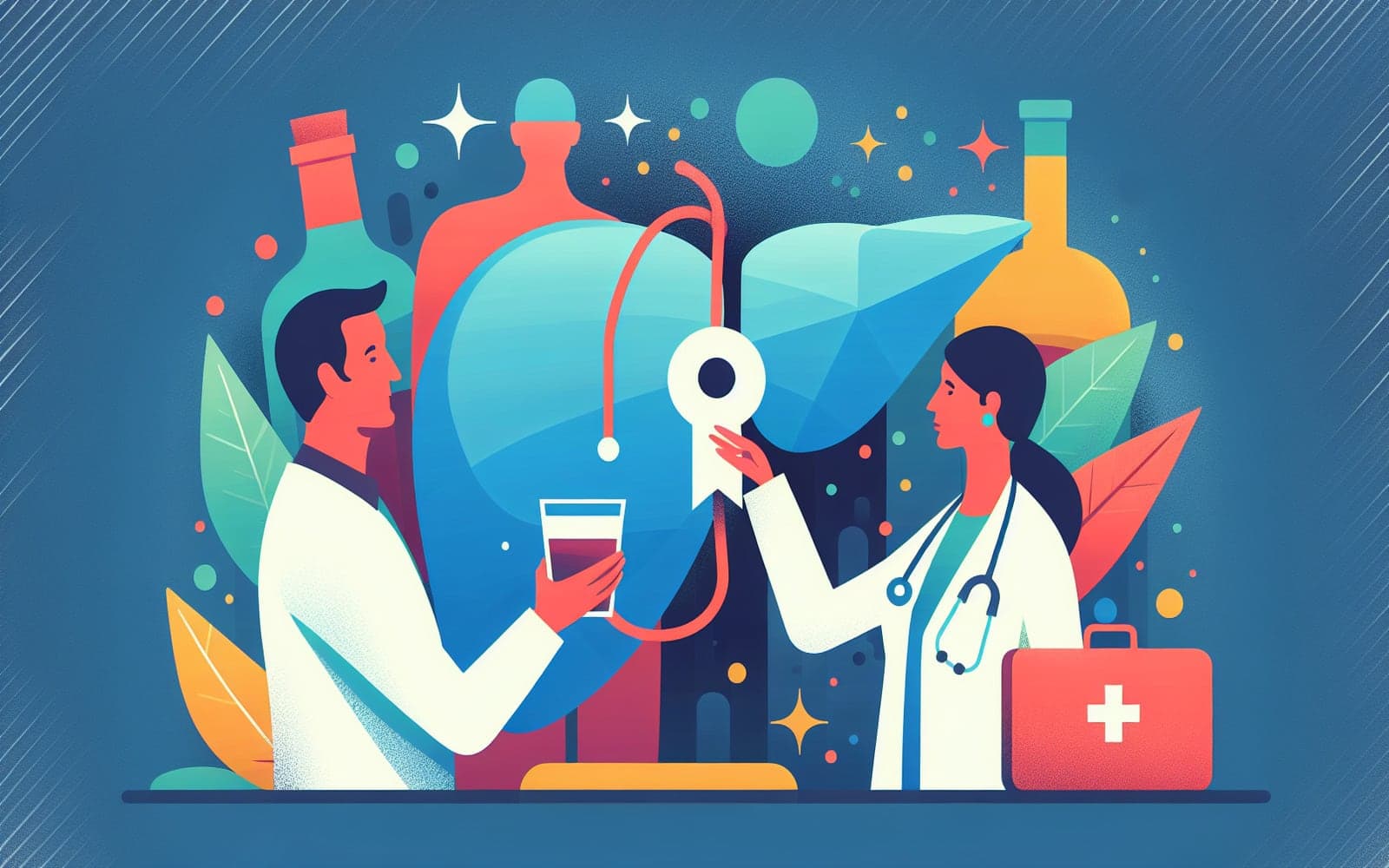Unlocking the Mystery: How Do Doctors Diagnose Alcohol-Related Liver Disease?
Published: Dec 01, 2023

Medically reviewed by Oghenefejiro Okifo | MD, Harvard Medical School | Henry Ford Hospital - Detroit, MI on December 1st, 2023.
Diagnosing ALD involves a series of tests and evaluations. Discover the procedures doctors use to uncover this hidden liver condition.
Contents
Initial Screening and History
Doctors start by reviewing a patient's alcohol consumption history and symptoms. Physical examinations look for signs like jaundice or liver enlargement. A patient's reluctance to disclose heavy drinking may necessitate input from family members.
Laboratory Tests
Doctors use blood tests to check liver enzymes, bilirubin levels, and other markers. Elevated AST compared to ALT is a common finding in ALD. Additional tests may rule out other liver conditions such as viral hepatitis or iron overload.

Imaging and Biopsy
Ultrasound, CT, or MRI can reveal liver steatosis or cirrhosis. In uncertain cases, a liver biopsy may be performed to confirm the diagnosis. These imaging techniques help differentiate ALD from other liver diseases.
Frequently Asked Questions
Blood tests, imaging scans, and sometimes liver biopsies are used.
It's used when other tests don't clearly diagnose ALD.
No, it's often combined with blood tests and other imaging.
They review patient history and may consult family for accurate information.
Key Takeaways
Early and accurate diagnosis of ALD is crucial for effective treatment.
Contact Doctronic to explore more about diagnostic tests for liver health.Related Articles
References
Singal AK, Mathurin P. Diagnosis and Treatment of Alcohol-Associated Liver Disease: A Review. JAMA 2021; 326:165.
Maheshwari S, Gu CN, Caserta MP, et al. Imaging of Alcohol-Associated Liver Disease. AJR Am J Roentgenol 2024; 222:e2329917.
This article has been reviewed for accuracy by one of the licensed medical doctors working for Doctronic. Always discuss health information with your healthcare provider.

